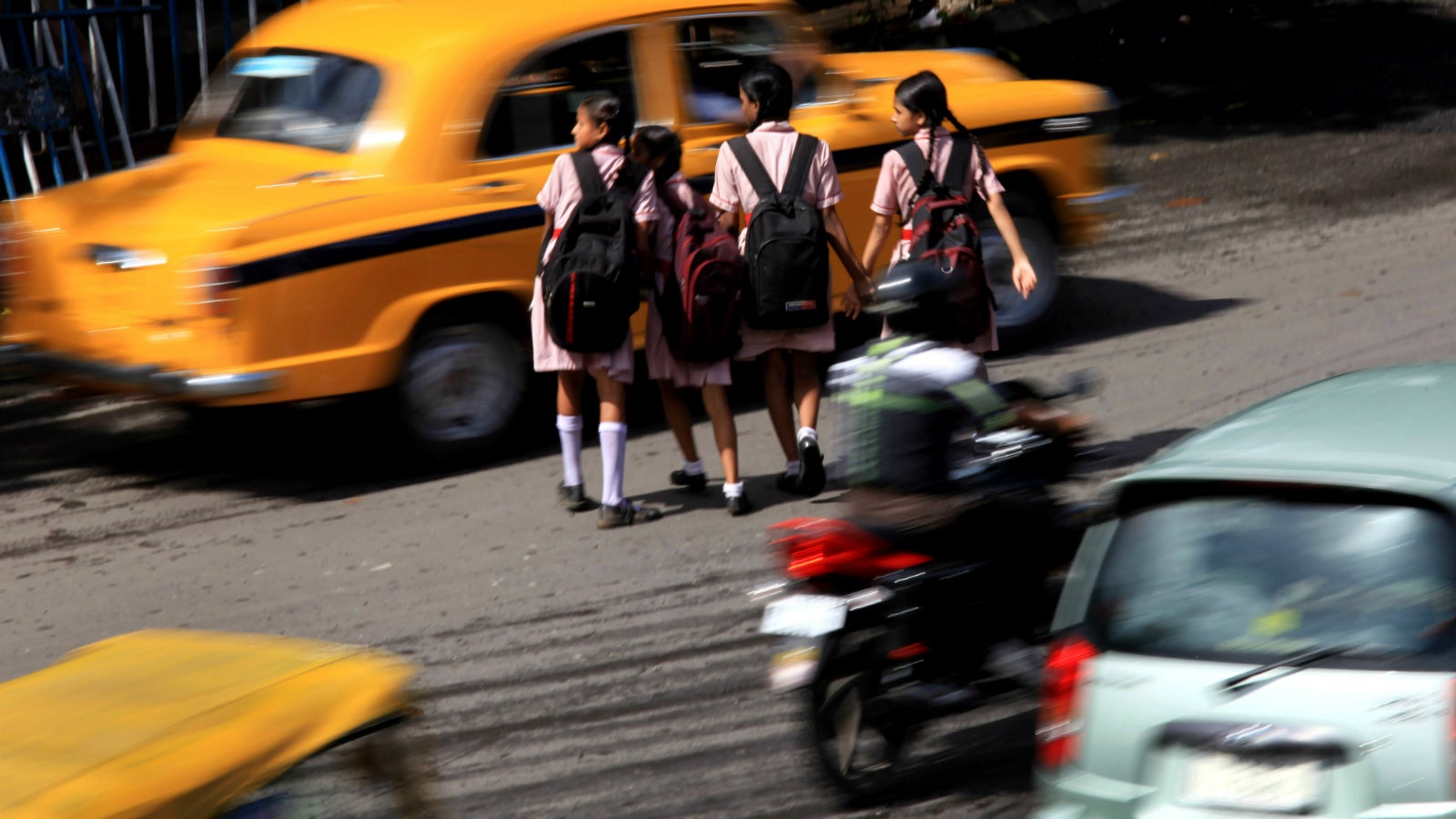Accidents on India’s deadly roads cost the economy over $8 billion every year
Every four minute, one person is killed in India because of a road accident.


Every four minute, one person is killed in India because of a road accident.
Every year, over 150,000 people die because of speeding, drunk driving or similar incidents.
In the past decade, over a million Indians have lost their lives on the country’s roads, which are among the deadliest in the world.
The economic loss from these accidents, India’s transport minister reckons, is close to 3% of the country’s GDP. That’s Rs55,000 crore ($8.2 billion) every year.
“Ever since I have taken charge of the sector, the biggest regret that keeps me haunting is that despite best of our best intentions, Road Safety Bill is stuck…I feel pained and helpless to see 1.5 lakh Indians, mostly youth, dying on roads,” India’s transport minister, Nitin Gadkari said on May 22.
Soon after coming to power in May 2014, the Narendra Modi government announced its intention to bring down the total road accidents in the country by half. The push for safety regulations in the road sector was hastened after a colleague of Modi and a senior member of his administration, Gopinath Munde, died in a road accident in New Delhi in June 2014.
The government even proposed a bill, the Road Safety and Transport Bill, 2014, to replace the existing Motor Vehicles Act, promising stricter punishment for rash driving and imprisonment for faulty manufacturing designs. The bill also had a provision for setting up of an independent agency to regulate vehicles and road safety. But the legislation has remained stuck, and is yet to be passed by the Indian parliament.
“Not so many people die in war or terror attack or Naxalite killing…not even in epidemics… It gives me sleepless nights and I want to cut accidents by at least 50% as early as possible,” Gadkari said.
The road safety bill, according to the transport minister has been delayed due to “vested interests” and from people who are “opposed to transparency and computerisation in the highways sector.” Last year, transport unions in at least eight states of India went on a strike to protest against the amendments proposed in the new road safety bill—and demanded a diluted version.
“In India, 30% of the driving licenses are bogus… There has been large-scale corruption in RTOs… Misconception was generated by those who will get affected due to transparency in the new legislation,” Gadkari said about the proposed road safety bill.
In January this year, the Modi government also promised to spend Rs11,000 crore ($1.65 billion) to fix 726 “black spots”, or particularly accident-prone stretches of road. “The fund will be used to fix engineering defects across (India). At some of these spots, over 100 people have lost their lives. We need to bring down road deaths by half,” Gadkari said on Jan. 11.
But it is not just India’s roads that are deadly. Earlier this month, a number of popular cars in India—including the Renault Kwid, Hyundai Eon and Maruti Suzuki Celerio—failed crash tests by London-based Global New Car Assessment Programme, or Global NCAP.